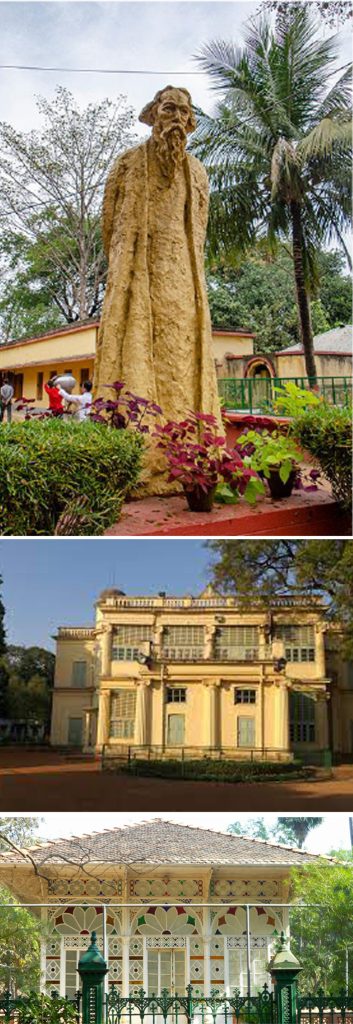Santiniketan is a neighbourhood of Bolpur town in Bolpur subdivision of Birbhum district in West Bengal, India, approximately 152 km north of Kolkata. It was established by Maharshi Devendranath Tagore, and later expanded by his son Rabindranath Tagore whose vision became what is now a university town with the creation of Visva-Bharati.
In 1863, Debendranath Tagore took on permanent lease 20 acres of land, with two chhatim (Alstonia scholaris) trees, at a yearly payment of Rs. 5, from Bhuban Mohan Sinha, the talukdar of Raipur, Birbhum. He built a guest house there and named it Shantiniketan (the abode of peace). Gradually, the whole area came to be known as Shantiniketan.
Bolpur was a small place in the middle of the 19th century. It grew as Shantiniketan grew.
Rabindranath Tagore first visited Shantiniketan in 27 January, 1878 when he was 17 years old. In 1888, Debendranath dedicated the entire property for the establishment of a Brahmavidyalaya through a trust deed. In 1901, Rabindranath started a Brahmacharyaashrama and it came to be known as Patha Bhavana from 1925.
In 1913, Rabindranath Tagore won the Nobel Prize in Literature. It was a new feather in the cap of the Tagore family which was the leading family contributing to the enrichment of life and society in Bengal in many fields of activity over a long period of time. The environment at Jorasanko Thakur Bari, one of the bases of the Tagore family in Kolkata, was filled with literature, music, painting, and theatre.
Founded in 1921 by Rabindranath Tagore, Visva Bharati was declared to be a central university and an institute of national importance, in 1951.


